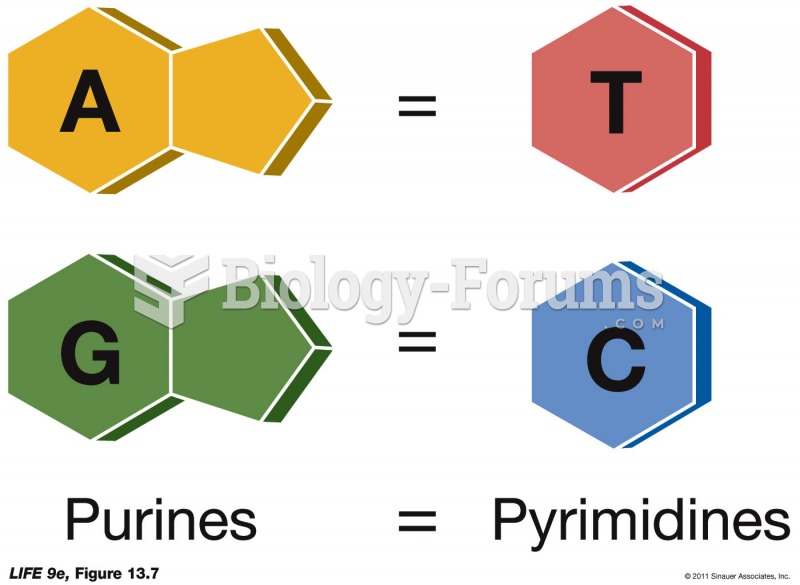|
|
|
More than 150,000 Americans killed by cardiovascular disease are younger than the age of 65 years.
The eye muscles are the most active muscles in the whole body. The external muscles that move the eyes are the strongest muscles in the human body for the job they have to do. They are 100 times more powerful than they need to be.
Signs and symptoms of a drug overdose include losing consciousness, fever or sweating, breathing problems, abnormal pulse, and changes in skin color.
In the United States, congenital cytomegalovirus causes one child to become disabled almost every hour. CMV is the leading preventable viral cause of development disability in newborns. These disabilities include hearing or vision loss, and cerebral palsy.
Alzheimer's disease affects only about 10% of people older than 65 years of age. Most forms of decreased mental function and dementia are caused by disuse (letting the mind get lazy).
 Slide along the bottom of the foot with the fist. Apply from the ball of the foot to the heel. Use ...
Slide along the bottom of the foot with the fist. Apply from the ball of the foot to the heel. Use ...
 Circular clockwise pattern. Gently lay a hand on the abdomen to establish contact. Apply effleurage ...
Circular clockwise pattern. Gently lay a hand on the abdomen to establish contact. Apply effleurage ...





